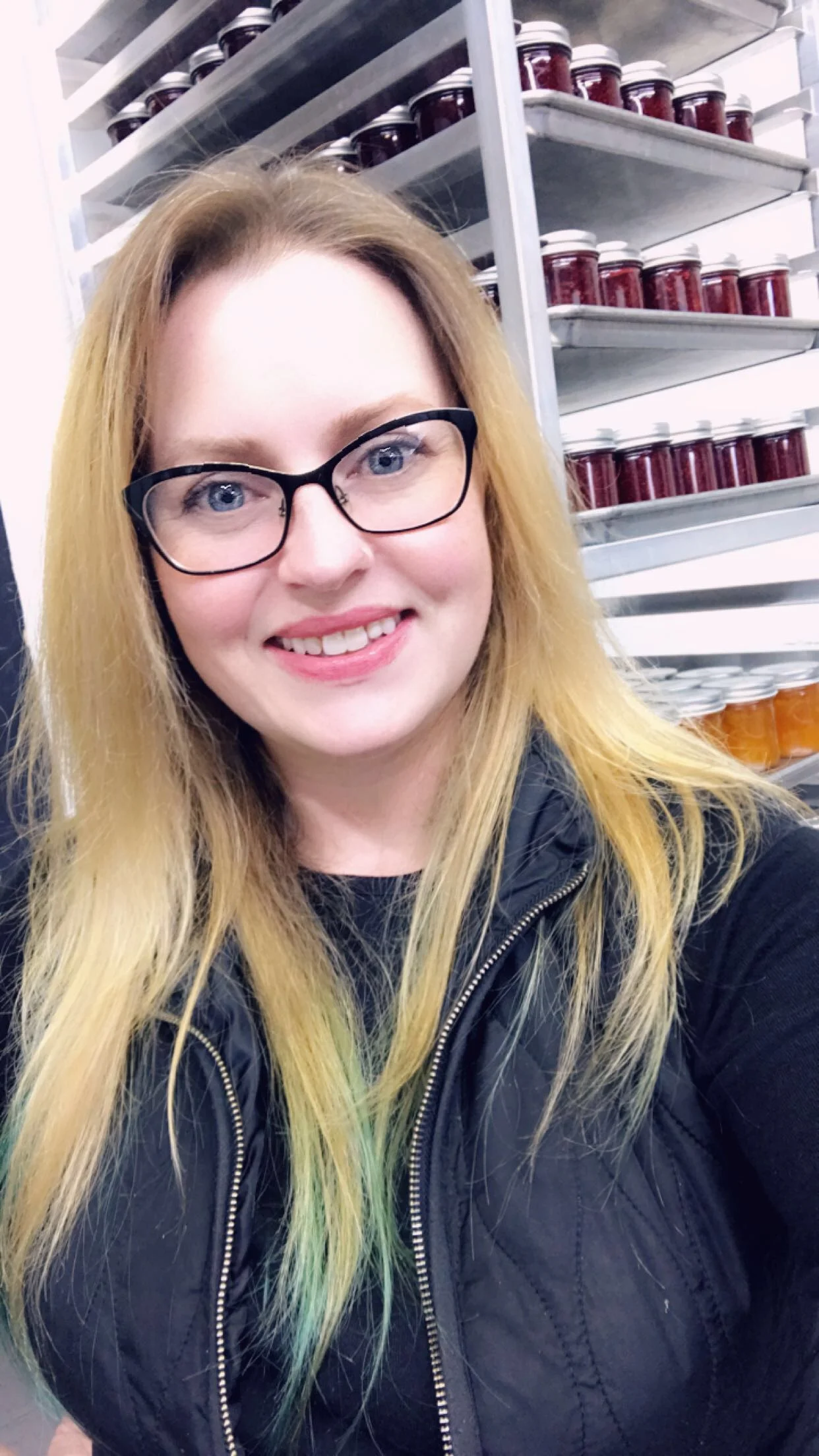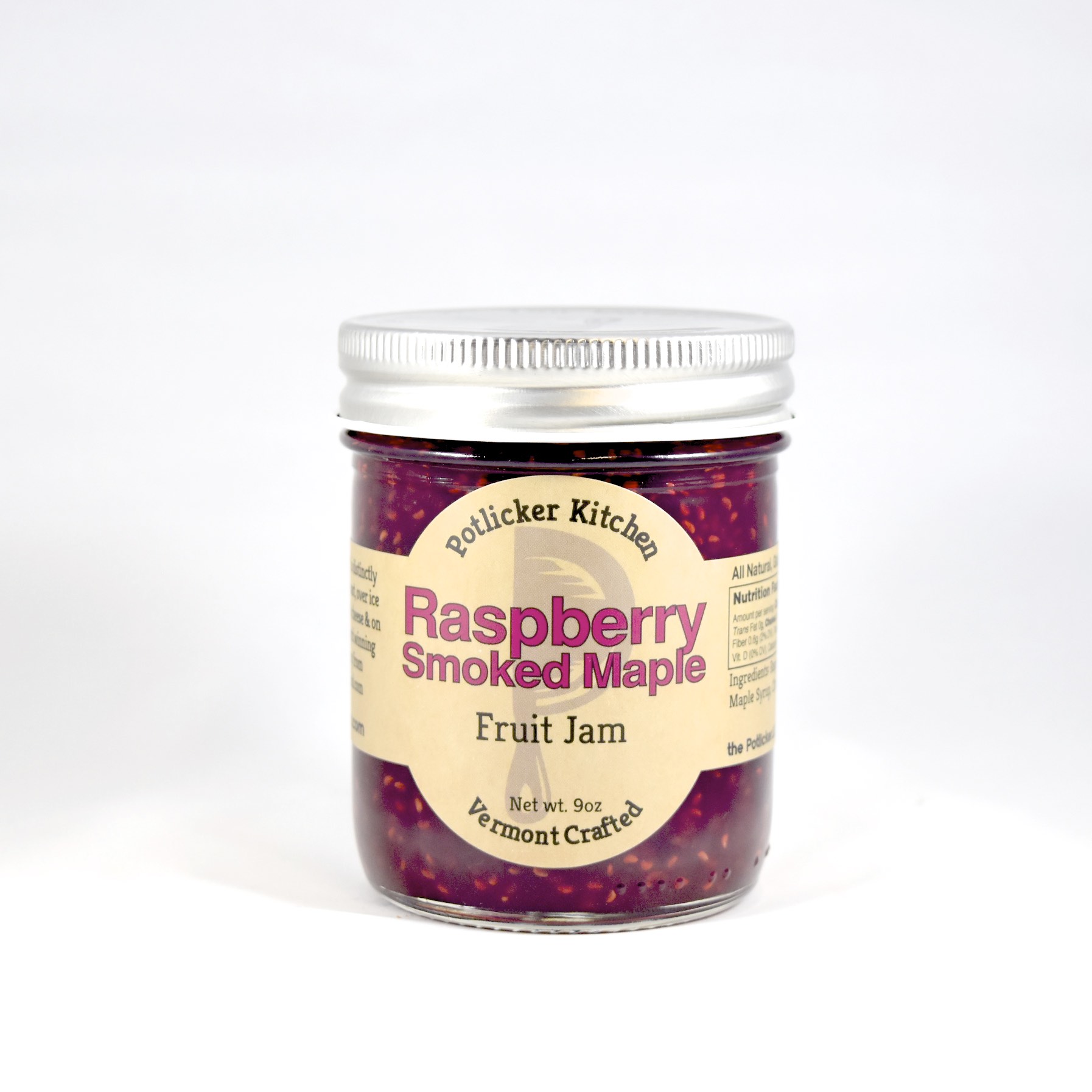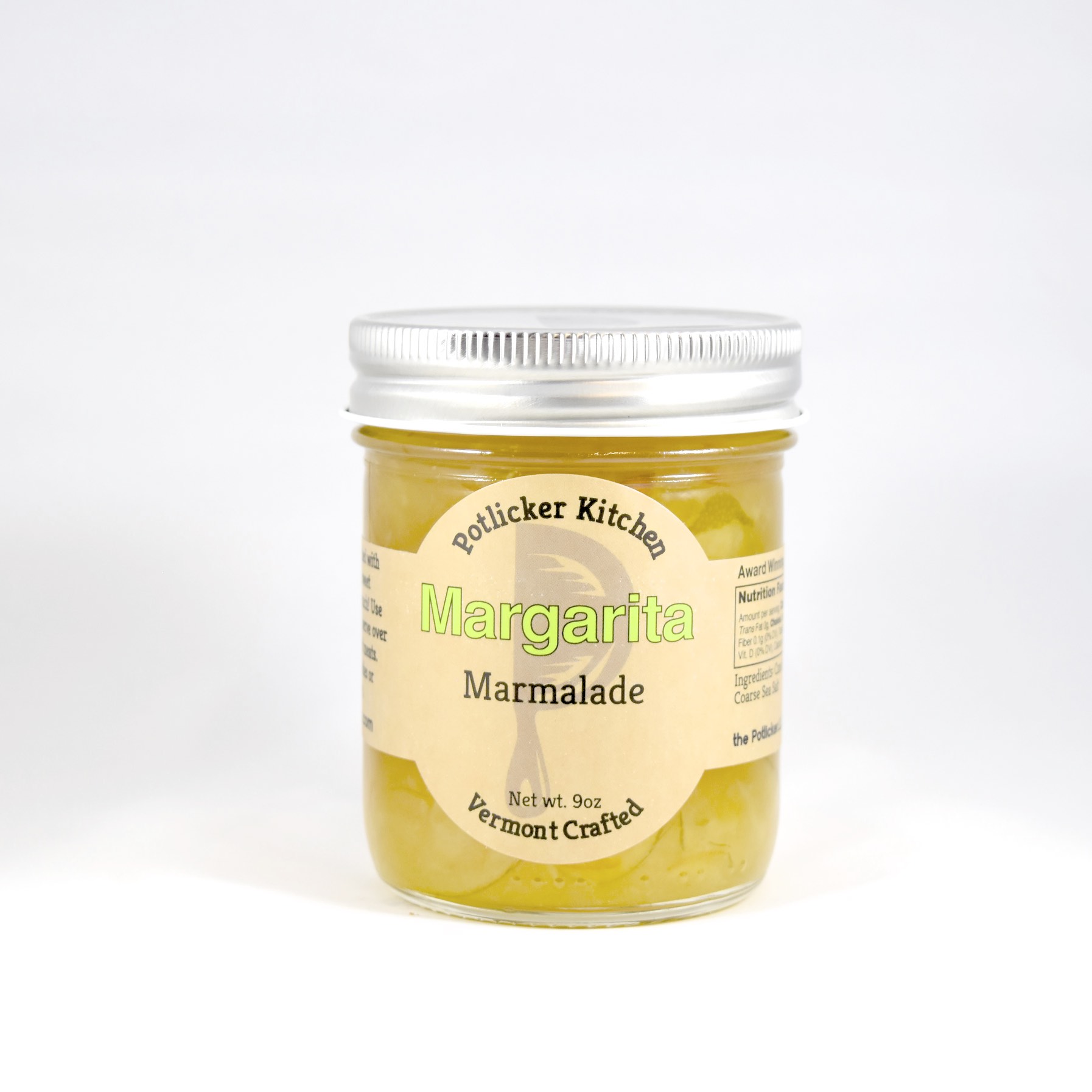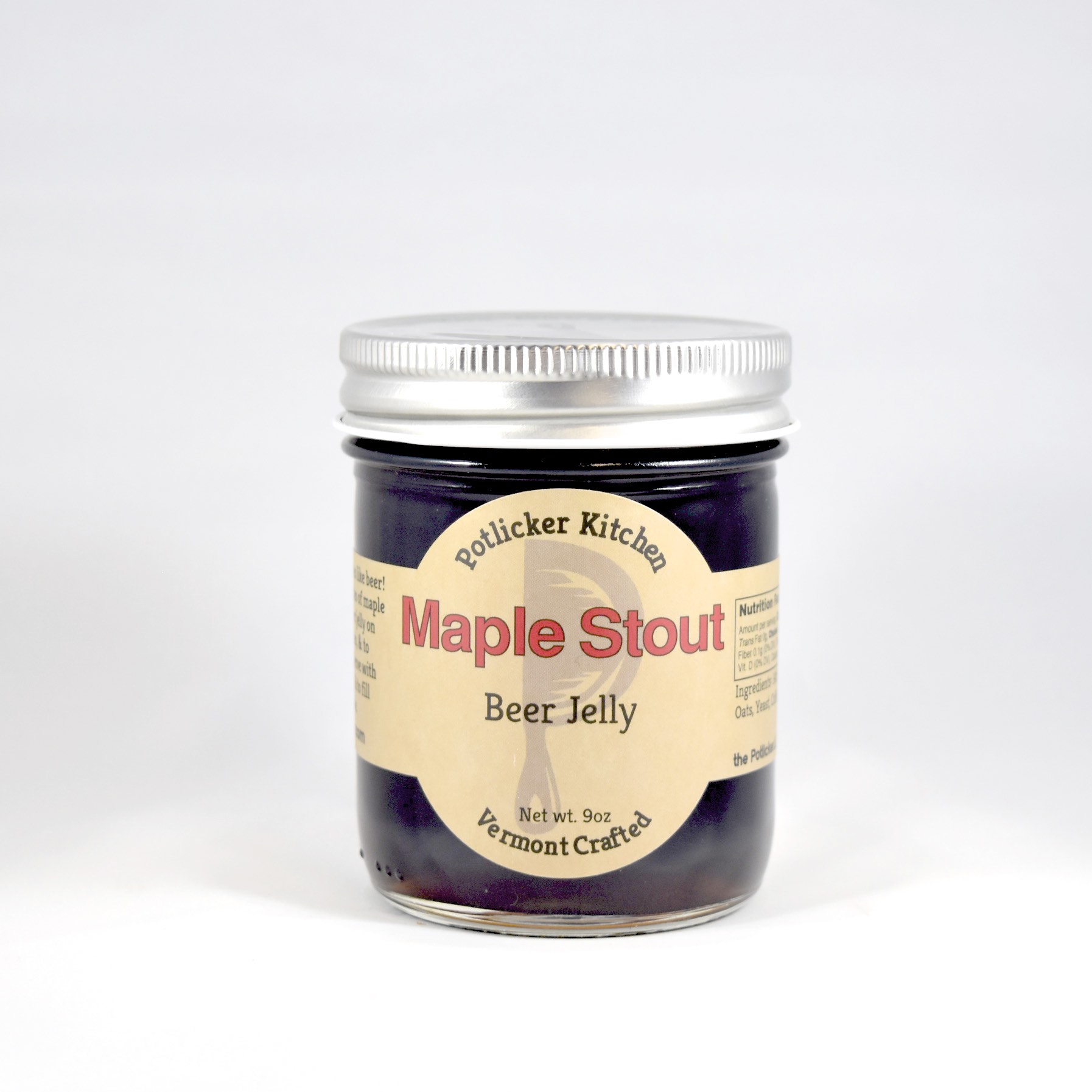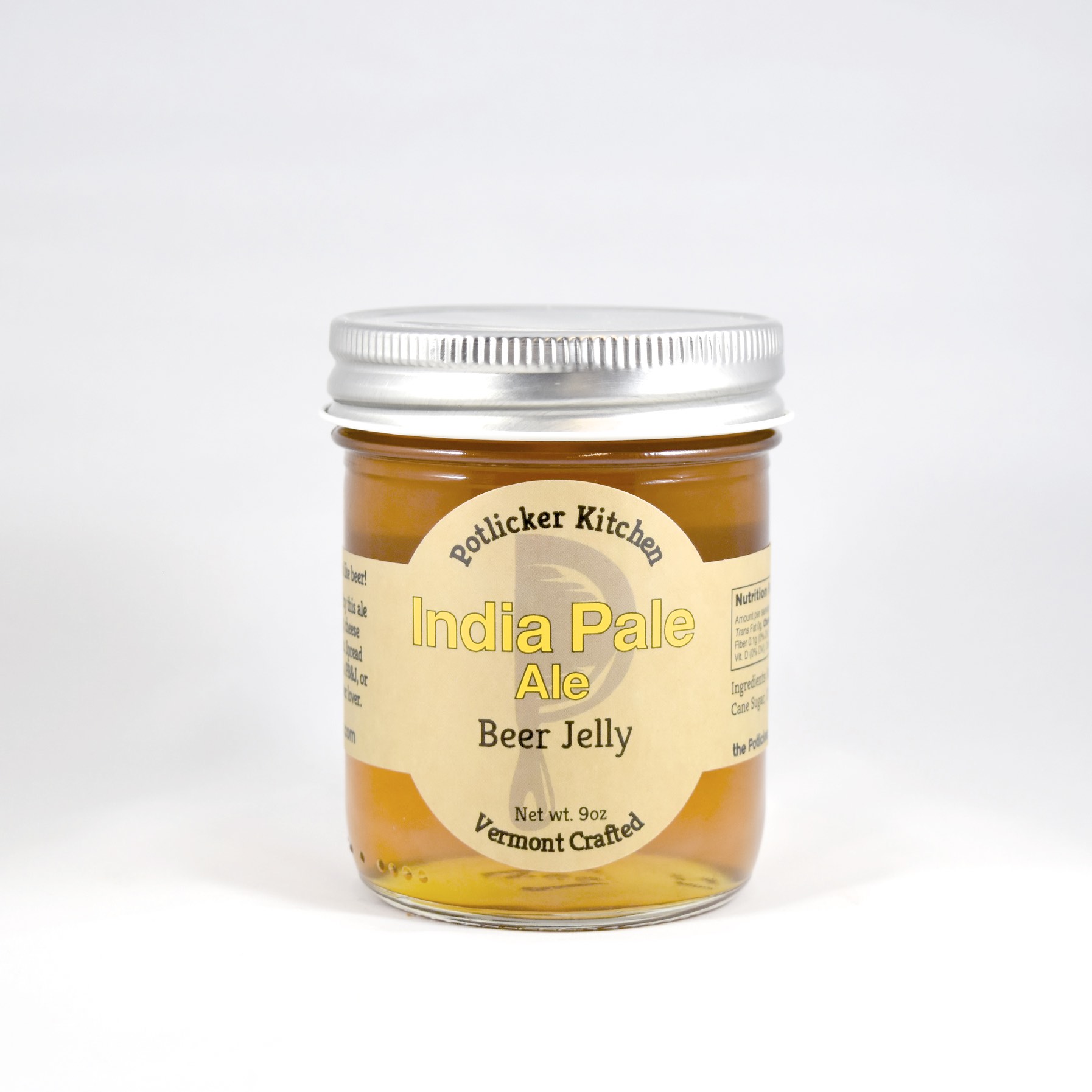A former archaeologist, Nancy Warner began her two-time Marmalade Awards Gold-winning and Sofi and Good Food Awards finalist jellies and jams business in a one-room school house in Vermont. (Whispers are that there are five more prestigious awards headed her way.)
In The Savory Pantry, you’ll find flavors like Margarita Marmalade, Cucumber Jalapeno Jam, Vermont Crafted Carrot Cake Jam, Blueberry Sage Jam, and Apricot Ale and India Pale Ale Beer Jellies. (And keep your mouth open for the soon-to-be-stocked Cabernet & Black Pepper Wine Jelly.)
Four years before Potlicker Kitchen reached half a million in sales in 2016, Nancy was transforming the passion for foraging that she’d developed as an anthropologist into a canning hobby.
“People often don’t realize how much food is just beyond their doorstep. As an anthropologist—archaeology being a field of anthropology—I became very interested in traditional foodways. That led me to begin foraging.”
Nancy was a Southeastern archaeologist who specialized in burial relocations. “I primarily did ‘phase one’ archaeology—which involved walking through the woods prior to construction projects to see what might need to be done beforehand—and phase three, which is what a lot of people think of—where you are out there digging in the dirt with trowels. There are many different burial traditions, so each job was a little different.” Many jobs, Nancy added, also “required a dark sense of humor.”
When she and her husband moved to Vermont so that he could attend law school, there wasn’t demand for a southeastern archeologist specializing in burial relocations.
Nancy says, “There wasn’t a job, and I needed a job, so I made a job. Foraging had a short season, and I learned how to can to extend the season. My parents had citrus groves where I grew up in Florida, and they would make marmalade. My grandmother always made blackberry jelly. So, I had been surrounded by canning at home, but more or less taught myself.”
As her hobby developed, Nancy wrote a food blog where she shared canning recipes. “When I realized how satisfying it was to take a raw product and put it up, I wanted to keep going with this obsession. I kept going, canning everything I could get my hands on. I even harvested wild grape leaves and put them up. I made a great batch of strawberry jam but really was interested in making something I couldn’t already buy. That idea still shapes a lot of my flavors today.
“At some point, I ran out of fruits and vegetables, so I started looking around the house to see what other ingredients I could use. There was coffee, vinegar, and a friend’s home brewed beer.” Then, Nancy was on to the ingredient that would launch her business.
“When I made my first beer jelly, no one else was making it. I was hanging out with a home brew beer club and had friends on the Vermont beer scene. Brewers either loved my beer jelly and the idea of it, or thought I was nuts.”
Bills were coming in and Nancy needed to pay them. “I thought about what I could do. I decided to put all the jellies in my pantry, including a couple of the beer jellies, in a basket and head to the holiday winter market. I sold them all! That really pushed me to make more and start selling at the farmers market.”
The demand for Nancy’s beer jellies increased rapidly. “I knew I was starting to push Vermont’s limit on income for a home business. I found a 500 square foot facility to rent about an hour away and started commuting.”
Then, in 2015—about three years after Nancy sold her first beer jelly—a call came that would be every entrepreneur’s dream. “Uncommon Goods found us. I didn’t know who they were. When they put the beer jelly on their site, they sold out in minutes. It was mind boggling. Then, the orders started coming to our site. After Black Friday, I printed out a ream of over 100 orders. I had to hire someone immediately. There was no time left in the day to commute. I was sleeping on the floor of the facility on packing materials, and getting up and doing it all over again. We stopped taking orders December 7 because we knew there was no way we’d get them ready in time for Christmas.” Potlicker Kitchen’s sales doubled each year from 2012 on, and hit half a million in 2016.
“With respect to everything I make at Potlicker, I always say: ‘Traditional techniques. Uncommon flavors.’ Most of our products are regional and some a hyper-local, like knotweed jelly.” Knotweed is an invasive species with which Nancy has managed to do something constructive. “With those super local products, they are made in small batches and only sold locally because it hasn’t made sense to me to sell them elsewhere. All of our beer jellies are made from Vermont brews and I try to stay local with other ingredients whenever it’s possible.
“I believe it’s important for us to become closer to our food systems and understand where foods come from. My volunteer work with food shelves [known as food pantries in the South] relates to helping people understand food sources.”
Now, with a very successful business and as a mother of two girls, Nancy is in the position of reassessing business relationships to ensure they are ones she really wants to have—relationships that comport with the core values of Potlicker Kitchen.
“I’ve worked with some big corporations and have had to rethink after experiencing corporate burn.” One instance of burn happened after Nancy drove six hours through a snowstorm to attend corporate training at her own expense, only to arrive on the company’s doorstep and find out the training had been cancelled with no notice. They wouldn’t even cover the cost of her lodging.
“I want to be in relationships with companies that are also thinking about me, not just their bottom line. That means downsizing a bit, but I am very comfortable with that. We have two to four employees, depending on the season.” Much of Nancy’s focus now is on building and continuing relationships with specialty and gourmet foods stores like The Savory Pantry.
This entrepreneurial pause and rethinking is sealed in the very essence of Potlicker’s philosophy, including in its name. “Potlicker Kitchen came from my anthropology roots. Potlicker is a common Southern name for the liquid in the pot when you cook something, and sometimes more specifically refers to the liquid that comes from hours of cooking collard greens and pork fat. For me, it also means licking the bottom of the pot and getting the most you can out of life.”
